Peripartum Cardiomyopathy: Care Instructions
Peripartum cardiomyopathy is a heart condition that can happen during pregnancy or soon after childbirth. Your heart muscle stretches more than normal and becomes weak. This can cause problems, like heart failure. This means that your heart can't pump the blood your body needs. Heart failure can cause serious problems and sometimes death.
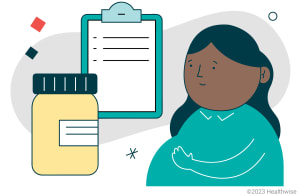
Treatment can relieve your symptoms and help your heart work better. You might take medicine.
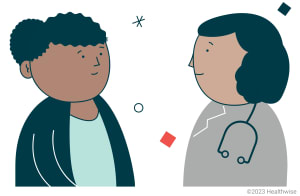
You and your doctor will work together to decide on a treatment plan for you.
Caring for yourself
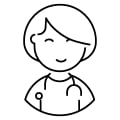
Be sure to go to all your doctor appointments.
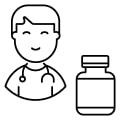
Take medicines as prescribed. Tell your doctor if you're having problems with medicines.
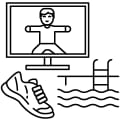
Try to be active most days. Talk to your doctor about what activities are safe for you.

Eat healthy, low-sodium foods. Choose vegetables, fruits, lean protein, and whole grains.
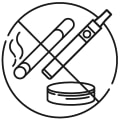
Avoid smoking or using tobacco. If you need help to stop or cut back, talk to your doctor.
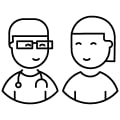
Avoid using drugs, including cannabis, and avoid or limit alcohol. It's safest not to use these things at all. If you need help cutting back on your use, talk to your doctor.
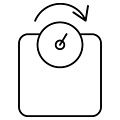
Watch for signs that you're getting worse. For example, weigh yourself daily. It can help you watch for sudden weight gain.

Trust yourself, and be direct. You're the expert on your body. If something doesn't feel right, get help. If you don't feel like you're being heard, say so.
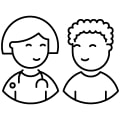
Talk with your doctor about your plans for future pregnancies. After having this condition, you're at higher risk of having it again.
When should you call for help?
Call 911 anytime you think you may need emergency care. For example, call if:
- You have symptoms of sudden heart failure. These may include:
- Severe trouble breathing.
- A fast or irregular heartbeat.
- Coughing up pink, foamy mucus.
- You passed out.
- You have chest pain.
Call your doctor now or seek immediate medical care if:
- You have new or changed symptoms of heart failure, such as:
- New or increased shortness of breath.
- New or worse swelling in your legs, ankles, or feet.
- Sudden weight gain, such as more than 1 to 1.3 kilograms (2 to 3 pounds) in a day or 2.3 kilograms (5 pounds) in a week. (Your doctor may suggest a different range of weight gain.)
- Feeling dizzy or light-headed or like you may faint.
- Feeling so tired or weak that you cannot do your usual activities.
- Not sleeping well. Shortness of breath wakes you at night. You need extra pillows to prop yourself up to breathe easier.
Watch closely for changes in your health, and be sure to contact your doctor if you have any problems.
Follow-up care is a key part of your treatment and safety. Be sure to make and go to all appointments, and call your doctor or nurse advice line (811 in most provinces and territories) if you are having problems. It's also a good idea to know your test results and keep a list of the medicines you take.
Where can you learn more?
Go to https://www.healthwise.net/patientEd
Enter B852 in the search box to learn more about "Peripartum Cardiomyopathy: Care Instructions".
Current as of: July 31, 2024
